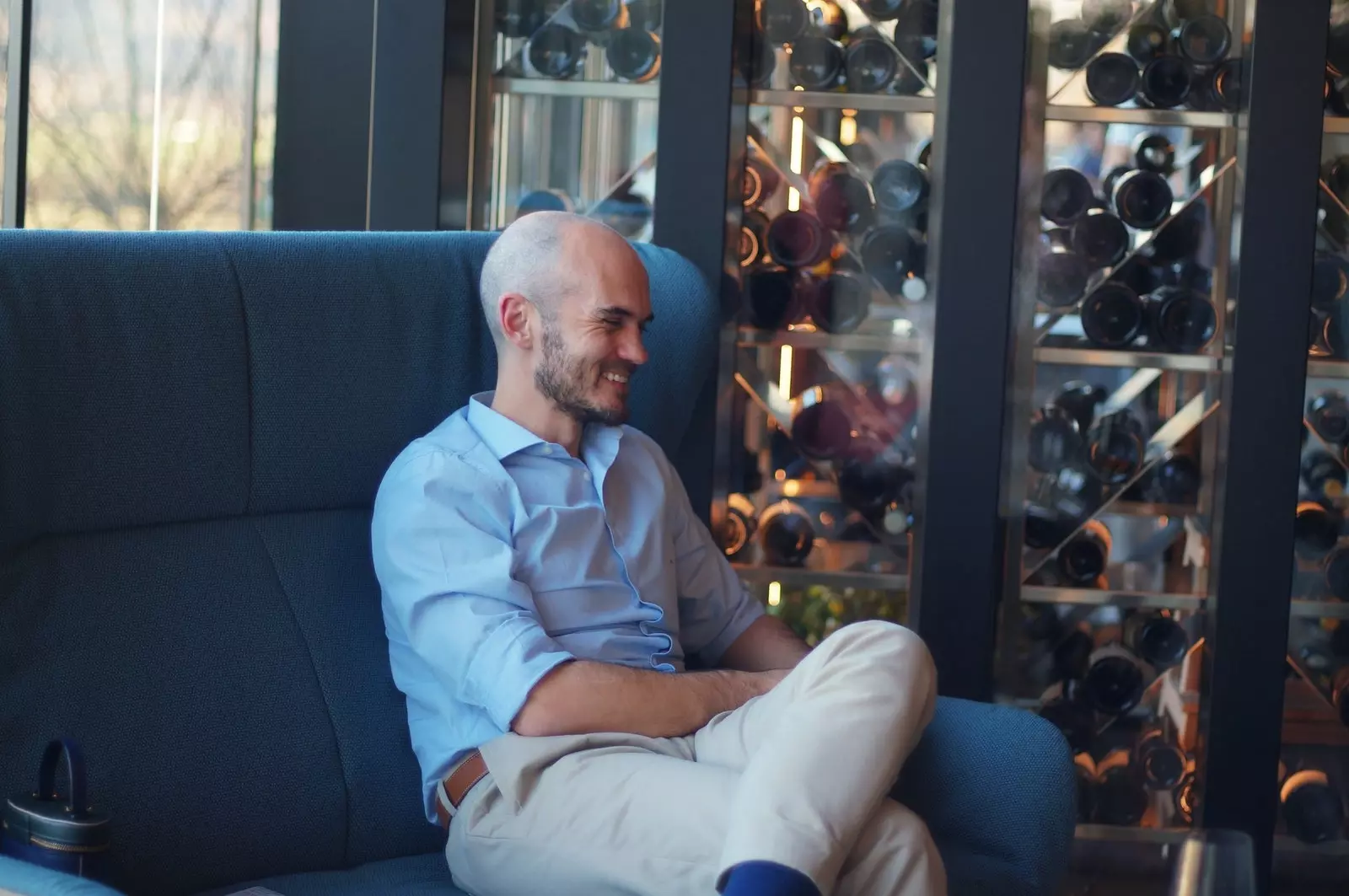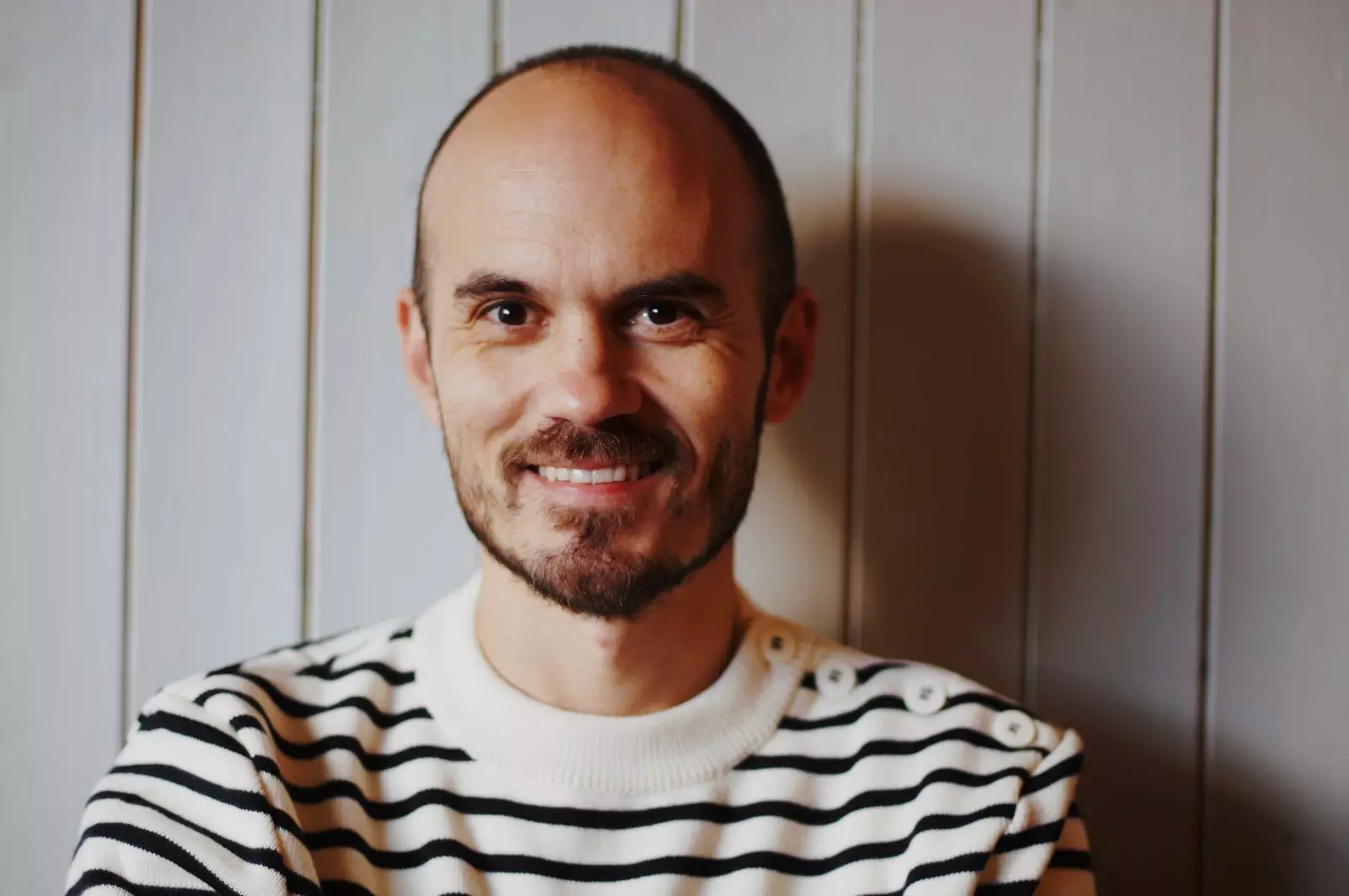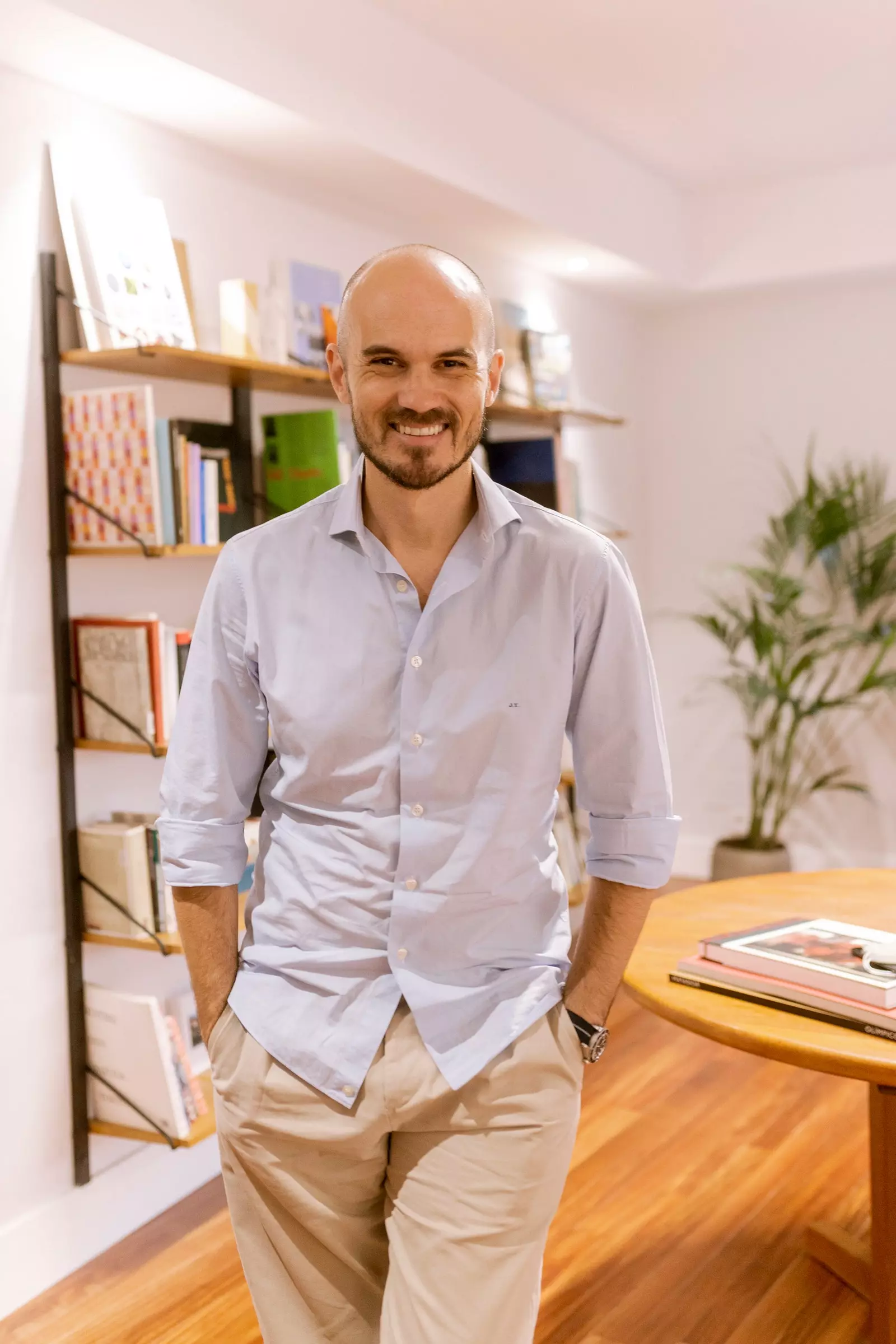
'Nothing matters': a window into the interior of Jesús Terrés.
Jesús Terrés is hard to catch free these summer days. Despite COVID and the restrictions, it is clear that the sector must be supported as much as possible. "I'm in a campsite without coverage, I'd better call you on Monday" , he tells me on Whatsapp when I try to call him several times on the phone.
The writer, columnist and, above all, hedonist is spending a few days in Alcossebre , in his beloved Valencian Community. There, exactly one year ago, he began shape the book that I have in my hands today . "It was Eva Serrano, from the Círculo de Tiza publishing house, who contacted me and pitched me the idea of publishing a book that compiled some of my texts."
Nothing matters is the title of a work that goes far beyond the simple collection of columns or writings several. It is, so to speak, a walk inside Terrés and our way of relating, in the last decade, with food, travel, literature, the press, movies or friends.

'Nothing matters' invites us to travel through inspiring stories.
A way of living that, believe it or not, has changed significantly in these ten years. It is not difficult to see yourself reflected in many of the stories that Terrés narrates in his two hundred pages, like when he tells us about the death of his father, of summer nights, of love relationships, of growing up or of his passion for whiskey.
Q: Have you noticed that affinity with the readers?
A: In these years I have seen how a community of readers -people who love you-, asked me for pieces that were no longer on the internet. Stories that had been important to them too. iconic . In the end, there were always one or two people who did it weekly.
Q: Has the book been the best format?
A: There were friends and readers who asked me to do something nice with those columns . That he compile them and add something else around the period from 2011 to 2019. But I had refused, I didn't need it. I didn't have that drive, that need to publish a book. Until today.
Many of the stories, columns and stories that appear here they have an origin, their blog for GQ, Nothing Matters . The space that gave it visibility and relevance. A place where Terrés every week He talked about what was going on around him. , but it was closed in 2016. "It was like finishing a stage," he says without any kind of regret. The book collects some of those writings , although it does not only stop at that period and is somewhat more ambitious, taking advantage of first-time or more current texts, those that best define his last stage as a gastronomic chronicler and traveler.
“At first I thought of doing it chronologically , so that the reader could better understand some writings from the beginning and forgive me as I wrote. However, the editor recommended that I not touch anything. That they would already take care of order, ”he explains. In this way, the book flows in a much more organic, less structured way. More free. “Someone when they are younger, they are more untethered or have less worry”, he describes himself about the freshness of the beginning. "It would be cheating to rewrite it with the look of now".
What is not lacking in the writing of Terrés, contributor to Condé Nast Traveler, GQ and Vanity Fair, as well as creative director of the Lobo agency (of which he is a founding partner), are the appointments and his passion for people, places and objects with a first and last name. A sherry has to be from Equipo Navazos, a Japanese whiskey has to be called Hibiki, a bar where you can let yourself go can't be other than Del Diego's and a song that describes all that has to be Lived in bars by Cat Power. Before being a writer, I am a reader. Just like before I was a gastronomic chronicler, I am a client” he sentences.
Q: How do you manage to organize so many references?
A: Sometimes in a physical notebook. An agenda from a Japanese brand called Midori . The typical Indiana Jones movie with worn skin. I am saving and writing down everything I see in that agenda . The good thing is that I can replace and classify the inside. It is organized by means of a rubber band system, so I can change the sheets inside
Q: And then you transfer everything to a computer and tag it?
A: Almost all the notes I transfer later to a digital ecosystem and there I can go tagging. I'll have like a hundred tags. The ones that predominate are those of press writers. I like them very much. I am first and foremost an opinion reader. and I always start the newspaper with that section. I also have a subtag that is “Inspiration”, which are those texts that help me to believe again in cinema or literature . They are like literary life preservers. I read them and say: "Okay, there are wonderful things written"

We look into the universe of Jesús Terrés
Terrés' way of writing, attached to experience and enjoyment, cannot be understood without his collaborations for Condé Nast Traveler . His director, David Moralejo, remembers reading Terrés during his time at GQ: “ In those days we wrote about very similar things . I had a column in Glamor called 'Secret notebook of a bon vivant' and I had a great time. We had mixed audiences. Then we started seeing each other more. We always coincided in the presentations of the Michelin Guide”.
Terrés began collaborating with Condé Nast Traveler in 2012 and managed to develop a look at gastronomy not very common in the sector . A much more transversal approach, dealing with sensations and their relationship with everything that surrounds eating. "In the end, his way of telling it is very attached to what Traveler is" , indicates Moralejo. "He has managed to give each place with which he collaborates a different personality, without ceasing to be him."
Thus, many of his hits have also been those of the magazine. His list of the best dishes of the year has already become a modern classic, as have his escapades to Formentor or Cádiz . Not to mention his tours of a Madrid that every day seems to belong to him more. “I live between two cities. My wife, Laura, has kept the house in Madrid, in the neighborhood of Las Rosas. And I always have to travel once a week for work, ”he points out. His other residence is in the Mediterranean , the place that stars in many of his stories. “ We live on the Patacona beach, in Alboraya , five minutes from Valencia. It is our base of operations.”
From here, Terrés will launch into a strange and different summer . “All the trips that I plan to make in these months will be in national territory. Probably in the Balearic Islands, in a small hotel where I got married two years ago ”, he indicates. Places that he himself defines as “paradises found. not lost” . It's time to rediscover what we already knew, "to swim in the sea again, to dream of the summer we were dating and be able to change the ending", as Family sang on their mythical 1994 album A Blow in the Heart.
